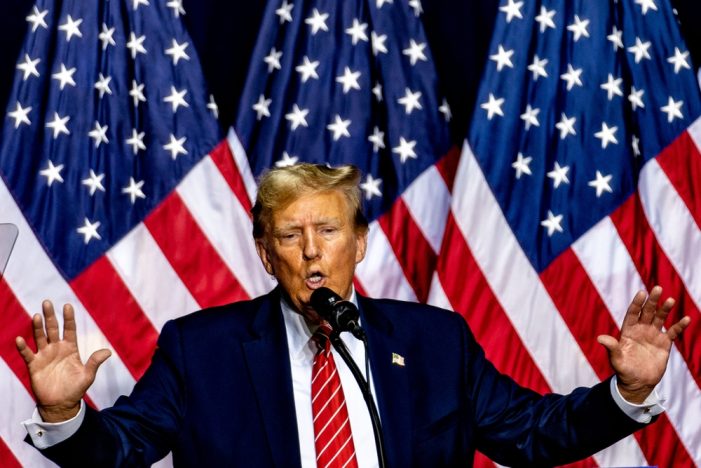By Chris Tobias |Editorial credit: Phil Mistry / Shutterstock.com
President Trump said in an interview with NBC News on Sunday that he was “not joking” about possibly seeking a third term. The recent statements by President Donald Trump regarding the possibility of pursuing a third term have ignited considerable debate and scrutiny. This analysis delves into the constitutional framework governing presidential term limits, evaluates the legal avenues for a third term, and explores the motivations behind President Trump’s assertions.
Constitutional Framework: The 22nd Amendment
The United States Constitution, through the 22nd Amendment ratified in 1951, imposes explicit limitations on presidential tenure. The amendment states:
“No person shall be elected to the office of the President more than twice…”
This provision was instituted following President Franklin D. Roosevelt’s unprecedented four-term presidency, aiming to formalize the tradition of a two-term limit and prevent the consolidation of executive power.
Legal Possibilities for a Third Term
Given the clear language of the 22nd Amendment, the pathways for a president to serve a third term are exceedingly narrow and would require significant constitutional alterations:
Constitutional Amendment: To repeal or modify the 22nd Amendment, a new amendment must be proposed, necessitating either:
- A two-thirds majority vote in both the House of Representatives and the Senate, or
- A constitutional convention called by two-thirds of state legislatures.
Subsequently, the proposed amendment must be ratified by three-fourths (38 out of 50) of the state legislatures. This rigorous process reflects the framers’ intent to ensure that only amendments with widespread and deep consensus become law.
Vice-Presidential Succession: Some interpretations suggest that if a term-limited president were to serve as vice president and the sitting president resigned or was incapacitated, the vice president could ascend to the presidency. However, this scenario is constitutionally ambiguous and would likely face formidable legal challenges. The 12th Amendment stipulates that no person constitutionally ineligible to the office of President shall be eligible to that of Vice-President, further complicating this route.
President Trump’s Statements and Motivations
In a recent interview, President Trump asserted, “I’m not joking” about seeking a third term and alluded to unspecified “methods” to achieve this objective.
These declarations have elicited a spectrum of reactions:
- Political Strategy: Some analysts posit that President Trump’s remarks are strategic, aiming to energize his base by portraying himself as a transformative figure challenging the political establishment. By suggesting a third term, he underscores a narrative of indispensability and continued leadership.
- Testing Constitutional Boundaries: Others interpret these statements as an attempt to probe the resilience of constitutional norms and gauge public and institutional receptivity to potential changes in presidential term limits.
- Distraction from Current Issues: Critics argue that such assertions serve as a diversion from pressing national concerns, redirecting media attention and public discourse toward speculative scenarios.
Historical Context and Precedents
Historically, the two-term tradition was established by George Washington and adhered to by subsequent presidents until Franklin D. Roosevelt’s four terms. The ratification of the 22nd Amendment codified this tradition into law.
Efforts to repeal or modify the 22nd Amendment have surfaced periodically but have gained little traction. The amendment’s endurance reflects a national consensus on limiting presidential tenure to prevent the emergence of prolonged, unchecked executive authority.
Conclusion
While President Trump’s contemplation of a third term has sparked robust debate, the constitutional barriers remain formidable. Any endeavor to pursue a third term would necessitate a substantial and improbable amendment process or navigate untested and legally dubious avenues.
The motivations behind President Trump’s statements may encompass political strategy, a desire to challenge constitutional constraints, or efforts to influence public discourse. Regardless, the 22nd Amendment stands as a testament to the nation’s commitment to democratic principles and the prevention of concentrated executive power.

